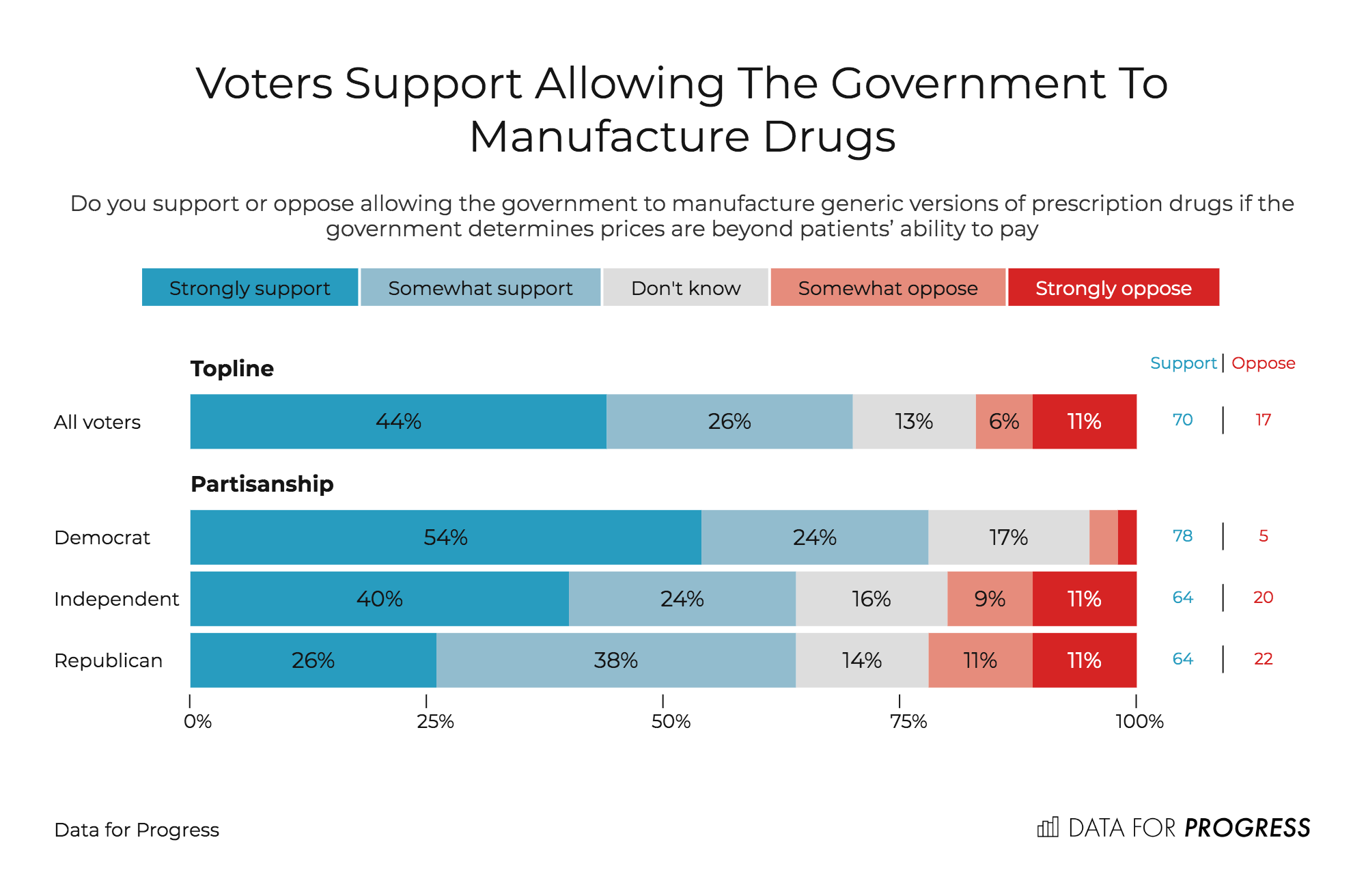Voters Support Government Manufacturing of Drugs And Other Medical Supplies
By Lew Blank
In a global pandemic, it’s a basic necessity that every healthcare provider is equipped with adequate life-saving equipment and supplies. But across the U.S., providers are already facing shortages of ventilators, N95 masks, and prescription drugs for coronavirus patients. In some cases, lacking these supplies could prove fatal.
These shortages demonstrate that leaving the manufacturing of essential drugs and supplies to the private sector alone is insufficient. It’s essential that the government steps in to fill in these gaps and produce the life-saving products we need.
Today, Sen. Elizabeth Warren and Rep. Jan Schakowsky unveiled the COVID-19 Emergency Manufacturing Act, which would establish an Emergency Office of Manufacturing for Public Health to dramatically ramp up the production of essential supplies. The proposal would require the new office to manufacture diagnostic materials, personal protective equipment, and pharmaceutical drugs for coronavirus patients, with a specific focus on addressing shortage gaps that are causing the greatest impact in the coronavirus response.
Not only would this plan address supply shortages, but it would also reduce the cost of these drugs by competing directly with pharmaceutical companies. This would allow more people to afford coronavirus treatment, which could slow the spread of the disease and save lives.
Last year, we tested this policy and found overwhelming public support: 70 percent of voters in support and 17 percent opposed. We asked,
Next, you will read about some policies being considered by some in Congress. For each of the policies below, please tell us whether you would [support or oppose] the policy:
A policy allowing the government to manufacture generic versions of prescription drugs if the government determines prices are beyond patients’ ability to pay
Obviously, once policies become discussed in the media, industry groups and Republicans will start to make arguments critical of the policies. To simulate what would happen after the idea faces partisan scrutiny we asked voters whether they’d support a proposal for the government to manufacture generic drugs as a way to combat shortages and make the drugs more affordable. We also included partisan framing and arguments for and against the policy. Specifically, we asked:
Some Democrats in Congress are proposing a policy allowing the government to manufacture generic versions of out-of-patent drugs either when there is a shortage or price hike, or when patients can't afford the drug. These will be sold to patients at cost.
Democrats supporting this proposal say it is necessary because the private market is failing to make life-saving drugs affordable and available for the average American.
Republicans opposing this proposal say it would result in the government manufacturing drugs that aren't needed, and that inferior government-produced drugs could lead to deaths from patients who take them instead of name brand drugs.
Do you support or oppose the proposal?
We found that a clear majority of Americans favor this proposal, with 52 percent support and 26 percent opposed. Democrats are the most supportive of the plan (69 percent support, 15 percent opposed), and independents aren’t far behind, with a 29 percent margin of support (48 percent support, 19 percent opposed). Republicans are largely split on the issue, with a slim plurality opposing the idea (34 percent support, 41 percent opposed). However, this opposition is not nearly as unified as the levels of support from Democrats and independents.
The chart below plots the more than 50 progressive policies we tested with pro and con arguments. As the chart shows, government manufacturing is among the most popular policies. Even with Republican opposition messaging, progressives should feel comfortable advocating for government manufacturing.
With lives on the line and a clear majority of voters in support, it’s time for Congress to pass Warren and Schakowsky’s act immediately.



